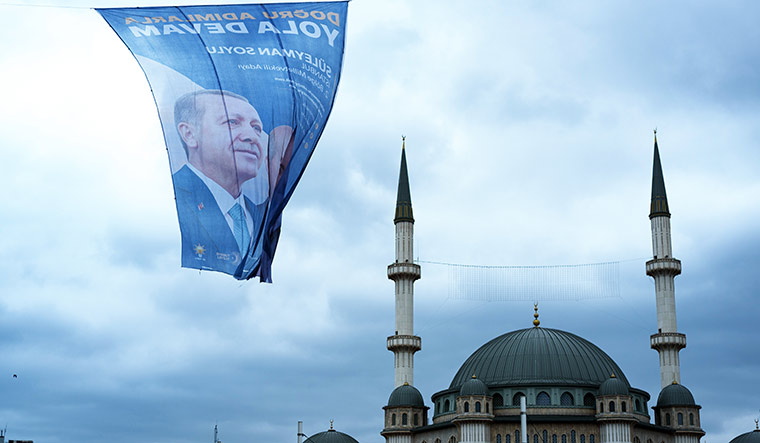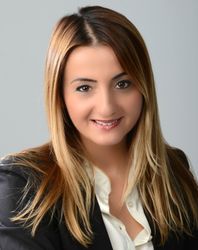“IF IT LOOKS LIKE A duck, walks like a duck and quacks like a duck, it probably is a duck.” An example of abductive reasoning, it means that if something has all the characteristics which suggest the same thing, it is most probably that thing itself, regardless of what it is called or presented as.
Before analysing the possible consequences of Turkish President Recep Tayyip Erdogan’s victory in the presidential elections on May 28, it is important to understand how the Turkish opposition managed to lose the most winnable elections of the last 20 years, despite Turkey being in the middle of a severe economic crisis and with public anger over the government’s response to powerful earthquakes in February that left at least 50,000 people dead. Was the opposition bloc’s candidate, Kemal Kilicdaroglu, who has never won a single election against Erdogan, the right candidate?
Kilicdaroglu might be the most honest person on earth, with the most robust democratic values and best intentions for his country, but having good intentions is never enough in politics to win a tight election, especially when almost all state resources are used in favour of the candidate who is in power. This was not a fair election at all, as all state resources were used in Erdogan’s favour, but this cannot be an excuse for the opposition’s loss.
Yes, a sprawling system of influence over the mainstream media and the judiciary and the state largesse helped to maintain the Turkish president’s popularity with the voters. But is it enough to explain the failure of the opposition bloc which consisted of a motley alliance of political parties called the Table of Six? The answer is no.
During his 13 years of leadership of the Republican People’s Party (CHP), Turkey’s main opposition party, Kilicdaroglu has been involved in 10 elections and yet he has never won a single one against Erdogan. On the other hand, there were other names on the table for the opposition, such as Istanbul Mayor Ekrem Imamoglu, who is a new face with the CHP and who has beaten Erdogan’s Justice and Development Party (AKP) twice during the local elections in 2019.
Yet, Kilicdaroglu insisted that he was the right candidate. And the rest of the leaders of the Table of Six, except Meral Aksener, the leader of the iYi (the Good Party), the second largest party in the National Alliance bloc, also wanted him to be the presidential candidate. What probably worked in Kilicdaroglu’s favour was the fact that he was a more unassuming politician than Imamoglu and compromised a lot of the CHP’s policies to keep the smaller parties within the alliance. Small right-wing parties, which have 1 to 2 per cent of the total votes, managed to win 38 seats in parliament thanks to Kilicdaroglu who favoured them over the CHP’s own candidates.
It was only Aksener who opposed Kilicdaroglu’s candidacy and supported Imamoglu by stressing constantly that the iYi was in favour of a candidate who had the capacity to win. She even walked away from a leadership meeting in an apparent show of anger immediately after Kilicdaroglu was declared the presidential nominee.
Second, with an ungrounded overconfidence, the opposition bloc believed that no matter what, it would beat Erdogan. According to political lobbies, the opposition leaders were fighting among themselves for seats in a future cabinet. They underestimated Erdogan’s ability to mobilise his voters by using a populist discourse, even if it occasionally included misinformation.
Third, by the time the opposition declared its presidential candidate, it was too late. The announcement came in March, just three months before the elections. That left the opposition leadership with insufficient time for an efficient election strategy.
The opposition alliance’s motto was “returning to the parliamentary system”, which called for abolishing the presidential system introduced by Erdogan. The intent was good, but the opposition leaders missed the fact they first had to win the elections in order to change the system. Moreover, the rhetoric itself did not appeal to the ordinary public as they were struggling with economic difficulties.
A series of wrong decisions and outright incompetence cost the opposition its chance to unseat Erdogan. To be more precise, just from the very beginning, Kilicdaroglu looked like a duck, walked like a duck and talked like a duck, but everyone in the opposition chose to believe that he was not a duck. (Before somebody starts a lynching campaign, I am using the word ‘duck’ as a metaphor, I am not calling Kilicdaroglu a ‘duck’.)
So, what now?
As Erdogan extends his rule into a third decade, and as the Turkish parliament becomes the most right-wing in history, there will be political, economic and social consequences of these elections. Turkey will be facing a more fragile economy with a higher risk of a slump in the lira. It is not clear whether Erdogan will stick to his low interest rate policy or not, but in any case, the lira might become much weaker against the dollar and euro and high inflation might cause much more economic hardship.
The pressure on independent media will probably increase, although Erdogan controls nearly 90 per cent of the mainstream media in Turkey. The downturn in democratic values and judicial independence will most probably continue.
Since it was the nationalist wing of the Turkish society which determined the results of this elections, the nationalist tone of the government will also increase, and Erdogan will feel more comfortable carrying his anti-western rhetoric further.
Another “winner” of this elections is Russian President Vladimir Putin who has cordial ties with Erdogan for many years. Despite mounting pressure on Ankara to help bolster western sanctions against Moscow in the light of the Ukraine crisis, Erdogan said in a recent interview that Turkey had a “special” and growing relationship with Russia. Putin was among the leaders who congratulated Erdogan immediately after the elections, calling him a “dear friend”, according to the Kremlin.
When it comes to foreign policy, Turkey’s tilt towards Russia, China and the east will continue. The west will have to live with the fact that Turkey, which has the second largest military force in NATO, is ruled by someone who enjoys cordial ties with Putin.
As Turkey continue to lean towards the east, ties with India will also improve. Turkey has been a firm believer in the expansion of the United Nations Security Council. Recently, Ruchira Kamboj, India’s permanent representative to the UN, called for a “major course correction” in the functioning of the Security Council. She said “India, which was the world’s largest democracy, along with Africa and Latin America, were being kept out of global decision-making”.
Turkey and India clearly share the same interests when it comes to reforming the UNSC system and there is a lot of room for cooperation in the international arena.
—Yezdani is a Turkish journalist who has covered diplomacy and international news for various media outlets including the Associated Press, BBC and CNN.



